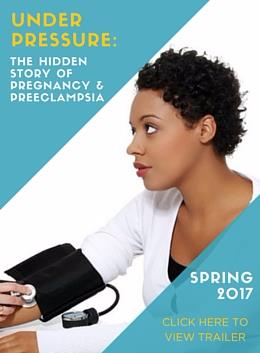Originally published on Cafe Mom’s ‘The Stir’ – June 23, 2016
By: Jacqueline Burt Cote
It sounds like a dream come true: an app or website that allows you to order birth control pills without having to go to the doctor, thereby eliminating most of the hoops we’re forced to jump through for contraceptives. In fact, this dream is now a reality, thanks to new services like Lemonaid — but does the convenience come at a price?
To get birth control pills sent directly to your home (or a prescription sent to your local pharmacy) through an app or website like Lemonaid or PrjktRuby, usually all you have to do is answer a few questions about your health and provide a form of payment. Some of the companies accept insurance, some require users to upload a photo, and not all services are available in all states — but overall, this development signifies a huge advancement in accessibility to a form of prescription contraception many people believe should be sold over the counter anyway.
So that part is good, right? Clearly, birth control should be made readily available to any and every woman who needs it; in fact, some public health officials are even hoping these apps will help to decrease rates of unintended pregnancies and abortions in the US. Other experts, however, are concerned about the possible medical repercussions for some users of taking prescription medication without a doctor’s guidance. While actual physicians do review women’s information before writing the scripts, there’s obviously no real-time physical exam, which means underlying conditions (such as thrombophilia, or the increased tendency to form blood clots) that would make certain forms of birth control dangerous for a person to take might go unnoticed.
“It’s scary,” Kecia Gaither, MD, a maternal fetal medicine specialist, tells CafeMom.
“Birth control pills are not innocuous,” she says. “For people that have underlying chronic issues they can cause blood clots — there’s a whole host of things that need to be evaluated. I think we’re wading into dangerous territories to just have them available without a prescription.”
Then there’s the host of factors that could interfere with the pill’s efficacy if accidentally overlooked, such as other medications a woman might be taking. Without real-time interaction between physician and patient, it’s a lot easier for significant details to slip through the cracks.
“A lot of patients forget things in their medical history, and that forgetting can cause you to be in a situation where you’re taking a medication that can increase your risk of having a problem,” says Gaither.
“I think before any prescription medication is ingested, you need to see your doctor and have a physical examination.”
It’s a tricky situation, to be sure, and one that continues to be incredibly complicated. On the one hand, it seems unfair that women can’t just go to the drugstore and grab a pack of birth control pills with the same ease that a guy can go and pick up a box of condoms — but on the other, birth control pills are a potent medication that significantly alters the function of the human body, and condoms are not. Yes, going to the doctor for an exam when all you want is a script for contraceptives feels like a giant inconvenience, but, as Gaither points out, we’re really supposed to be seeing our OB/GYN once a year anyway, so you could look at it as killing two reproductive health-related birds with one stone.
You could also look at it as a positive step toward doing away with the stigma associated with reproductive health and the restrictions that stigma can cause. Don’t forget that in this day and age, some women are still made to feel ashamed for seeking out birth control — and there are still some places where pharmacists refuse to give out the morning after pill (which is also available through some of these services). And that, of course, needs to change.
I would say, personally, that these apps are probably best used in a pinch. (I wouldn’t rule out using one myself if I for some reason absolutely couldn’t get to the doctor but desperately needed a refill ASAP.) Overall, though, I think it’s important for women to remember that we need to be taking care of ourselves, and that includes taking time out to see the doctor regularly. In other words, life isn’t perfect — and if you’re really too busy to go to the doctor, then you’re definitely too busy for an unwanted pregnancy … but proceed with caution.






